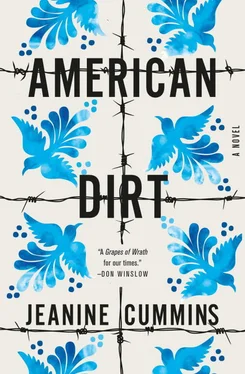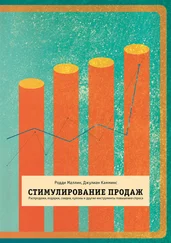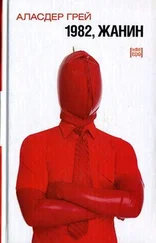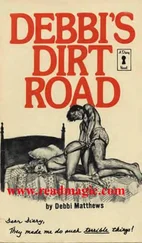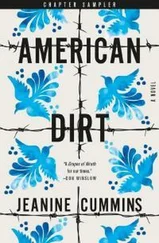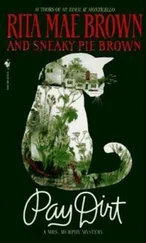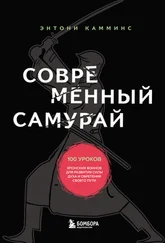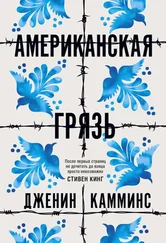Жанин Камминс - American Dirt
Здесь есть возможность читать онлайн «Жанин Камминс - American Dirt» весь текст электронной книги совершенно бесплатно (целиком полную версию без сокращений). В некоторых случаях можно слушать аудио, скачать через торрент в формате fb2 и присутствует краткое содержание. Город: London, Год выпуска: 2020, ISBN: 2020, Издательство: Tinder Press, Жанр: Современная проза, на английском языке. Описание произведения, (предисловие) а так же отзывы посетителей доступны на портале библиотеки ЛибКат.
- Название:American Dirt
- Автор:
- Издательство:Tinder Press
- Жанр:
- Год:2020
- Город:London
- ISBN:978-1-4722-6138-0
- Рейтинг книги:5 / 5. Голосов: 1
-
Избранное:Добавить в избранное
- Отзывы:
-
Ваша оценка:
- 100
- 1
- 2
- 3
- 4
- 5
American Dirt: краткое содержание, описание и аннотация
Предлагаем к чтению аннотацию, описание, краткое содержание или предисловие (зависит от того, что написал сам автор книги «American Dirt»). Если вы не нашли необходимую информацию о книге — напишите в комментариях, мы постараемся отыскать её.
FEAR KEEPS THEM RUNNING.
HOPE KEEPS THEM ALIVE.
Vivid, visceral, utterly compelling, AMERICAN DIRT is the first novel to explore the experience of attempting to illegally cross the US-Mexico border. cite empty-line
9
empty-line
11 empty-line
14
American Dirt — читать онлайн бесплатно полную книгу (весь текст) целиком
Ниже представлен текст книги, разбитый по страницам. Система сохранения места последней прочитанной страницы, позволяет с удобством читать онлайн бесплатно книгу «American Dirt», без необходимости каждый раз заново искать на чём Вы остановились. Поставьте закладку, и сможете в любой момент перейти на страницу, на которой закончили чтение.
Интервал:
Закладка:
‘You’re not…’ She doesn’t know how to finish the question, so she doesn’t. It hangs, half-formed.
He has black shorts on now, and his skin has been darkened a shade or two by the sun, but everything else about him is the same: the diamond stud earrings, the flat-brimmed baseball cap, slightly sun-faded, but still clean. His socks are remarkably white for a migrant, but his expensive shoes are beginning to look worn. He sits up and swings his feet to the floor in front of him. ‘Look, I know I make you uncomfortable, and I don’t really give a shit. It’s not my problem,’ he says. ‘But I swear I didn’t follow you, I wasn’t looking for you. Just like I told you, I’m done with all that Jardinero shit. I’m out.’
Lydia studies him for a moment. Because there’s nothing she can do about any of it, about the graffiti announcing Javier’s presence, about the sickening proximity of Lorenzo, about feeling acutely distrustful of everyone she meets: Marisol, who emerges from the kitchen to retrieve and unpack the groceries, the men sitting at the counter playing cards, Lorenzo smirking on the couch. Any one of them could mean her harm. Any one of them could murder Luca in his sleep. They haven’t done it yet. So perhaps they won’t. Lydia rubs her thighs through her jeans. Maybe it’s just a coincidence, his being here. The graffiti.
‘Okay,’ she says.
‘Así que tranquila.’
She regards him for another moment. ‘But if it’s true,’ she says. ‘If you’re really out?’ She lets a beat pass so she can focus, measure her words. ‘Then there’s something you should know.’
‘Yeah? What’s that?’
‘Los Jardineros are here.’
A calculated disclosure. Sharing this information may benefit her in a number of ways.
‘In Nogales?’ he asks.
She nods. Perhaps he’ll feel indebted to her. In any case, there is this: the opportunity to observe his reaction. And he does react. He blanches. Gone is the smile, the arrogant posture. He sits up and clears his throat. His shoulders hunch automatically, so Lydia can see it’s authentic. Lorenzo is afraid.
‘How do you know?’ he asks.
‘I saw their graffiti.’ She sits down on the arm of the opposite couch. She’s aware of the two men at the counter, listening. Their cards remain in their hands.
‘Close by?’
‘A few blocks from here.’ She turns to Luca. ‘Why don’t you go check on the girls. See what Beto is up to.’ He scoots down the hall into the bedroom where they all slept last night. To Lorenzo she says, ‘You want an omelet?’
While the two women are cooking, Soledad escapes the apartment. What felt spacious for the five of them is cramped with nine, especially with the reappearance of that revolting naco Lorenzo.
They’re in the far west of the city, only steps from the border, and Soledad paces the street outside, up and down the hill, watching the emptiness on the other side. The border is unnatural here, a sharp and arbitrary line that slashes through the desert, restraining the surging city behind it to the south. There is almost nothing Soledad can see on the northern side of that line – perhaps there really isn’t anything over there, or perhaps whatever’s there is hidden by the buckles and folds of the landscape. On her third trip down the hill, she goes a little farther and finds a remarkable place where the landscape funnels into itself. There’s a bald patch of dirt beside the road, and a little berm built up there that looks like a ramp. Indeed, the berm is higher than the fence because of a significant dip where the border is lower than the road. Soledad stands on this ramp, and her heart soars across like a bird. She could almost run and launch herself across. She might manage to jump it from here. She scrambles the few feet down the gravelly embankment to where the rusty red fence digs into the earth, and she wraps her fingers around two of the thick red posts, and leans her forehead against the bars, and she can see very clearly then that the fence is only a psychological barrier, and that the real impediment to crossing here is the technology on the other side. There’s a dirt road over there that follows the jagged landscape wherever it leads. The road is worn smooth by the regular accommodation of the heavy tires of the United States Border Patrol. Soledad cannot see them, but she can sense them there, just out of sight. She sees the evidence of their proximity in the whirring electronics mounted on tall poles that dot the hillsides. She doesn’t know what those contraptions are – cameras or sensors or lights or speakers – but whatever they are, she can sense that they’re aware of her presence. She sticks her hand through the fence and wiggles her fingers on the other side. Her fingers are in el norte . She spits through the fence. Only to leave a piece of herself there on American dirt.
CHAPTER TWENTY-NINE
Lydia borrows a machete from one of the men to cut the onions and avocado, because there isn’t even a knife in the kitchen. There are paper plates in one of the drawers, but no forks, so they scoop the eggs into tortillas and eat them wrapped up. Lorenzo seems preoccupied.
‘You have to eat more than that,’ Lydia tells him when he returns his plate to the counter still half-full. ‘You need lots of calories if you expect to walk through the desert.’
He stands with one hand hanging loose by his side, and regards her. He seems at a loss. She takes the plate and adds another spoonful of eggs, a wedge of avocado.
‘Here.’ She pushes it back to him. ‘Want a banana?’
He leans his elbows on the counter, picks at one corner of the tortilla, and eventually takes a bite. He talks with his mouth full. ‘Why you being so nice?’
She gathers up the empty paper plates the other men left behind, and selects a banana from the bunch for herself. She snaps the top and starts to peel it. ‘I know what it’s like to run from them,’ she says simply. ‘I know what it’s like to be afraid.’
After the food, the day passes in excruciating eagerness. Lydia tries to engage the men in conversation, but they’re sullen, and they stick to their card games for most of the day. When they do speak, infrequently, Lydia strains to discern their accents, but eventually she releases herself from the effort. Because again: Why? If they are violent men, if they know her or recognize her, and decide to trade her life for a small fortune, she will find out soon enough.
They all go to sleep early, stocking up on rest while they can. Lydia, the sisters, and the two boys share the same bedroom where they slept last night. Marisol joins them, and they all stack their packs against the closed door. They curl up in corners or stretch out with their jeans rolled into makeshift pillows. Rebeca throws one arm over Luca like a teddy bear, and the two of them snore softly together. Beto sleeps sprawled out on his back in the shape of an X with his mouth wide open. The two quiet men share the other bedroom, and Lorenzo takes the couch.
Luca dreams of a deep stone well. At the bottom of the well are the sixteen bullet-riddled bodies of his family. He knows this not because he looks into the well – in fact, he takes care to give the well a wide berth anytime he has to pass it during his day – but because he hears them talking down there. He hears the echoey sounds of their laughter and lively conversation. He hears Papi telling jokes to Yénifer and Tía Yemi. He hears Tío Alex playing monster-tag-wrestling with Adrián, hears his cousin squealing and laughing while his father tickles him. Luca even hears Abuela lightly scolding them all, not because she actually disapproves, Luca realizes, but because a casual reprimand is Abuela’s way of participating, and that is the thing, really, that makes Luca understand that the dream is real. Because this insight about Abuela is new, a thing Luca didn’t perceive about her when she was alive. So they are still there, Luca knows. They are at the bottom of the well. And he wants to go to them. He wants to be with them. He knows that the holy water down there is life, that it’s essential, that it will satisfy his every need, that it has revived them all. So he goes, he goes to the well at last, without fear, without hesitation. But as he approaches, their voices and laughter cease. It’s only the plink and trickle of some unseen droplets that echo into the shadowy depths. So Luca pulls on the rope instead. He thinks to draw up the bucket, that maybe he can ride it to the bottom. They can all be reunited. But he knows by the smell that something’s wrong. Before the bucket is fully visible, he can tell. There’s a rottenness. He draws the bucket into the light, and it’s only a flash of gore. Fingers, eyeballs, teeth. Papi’s earlobe, a lock of Yénifer’s hair. All floating in the putrid bucket of blood.
Читать дальшеИнтервал:
Закладка:
Похожие книги на «American Dirt»
Представляем Вашему вниманию похожие книги на «American Dirt» списком для выбора. Мы отобрали схожую по названию и смыслу литературу в надежде предоставить читателям больше вариантов отыскать новые, интересные, ещё непрочитанные произведения.
Обсуждение, отзывы о книге «American Dirt» и просто собственные мнения читателей. Оставьте ваши комментарии, напишите, что Вы думаете о произведении, его смысле или главных героях. Укажите что конкретно понравилось, а что нет, и почему Вы так считаете.
